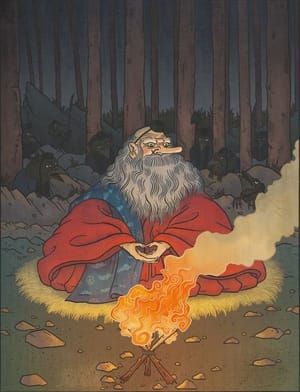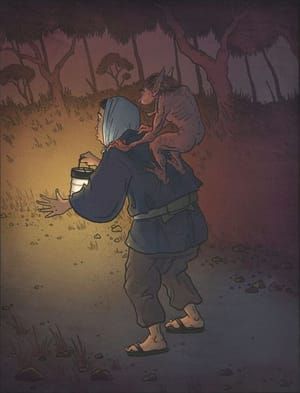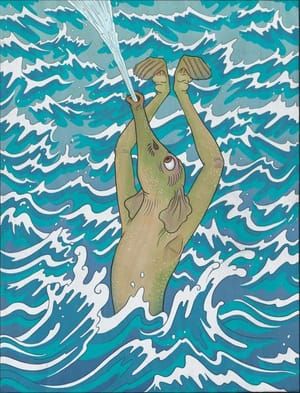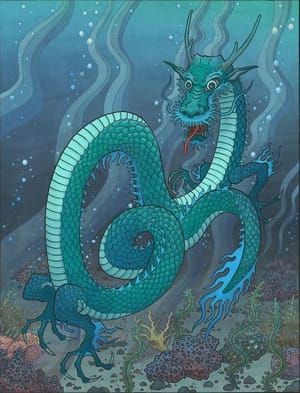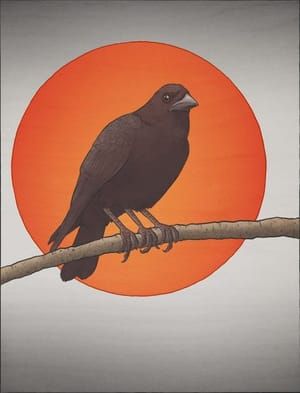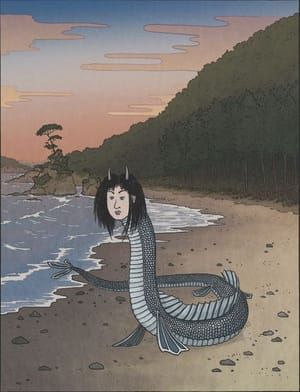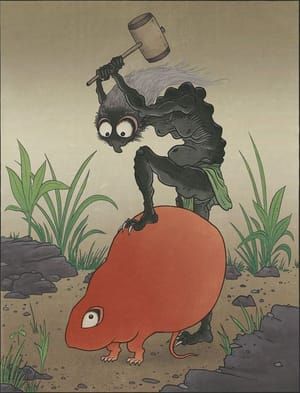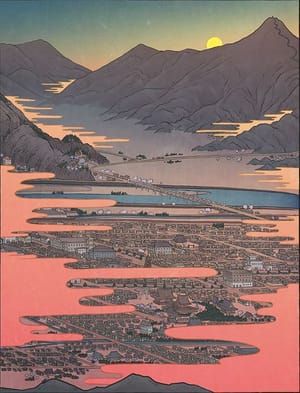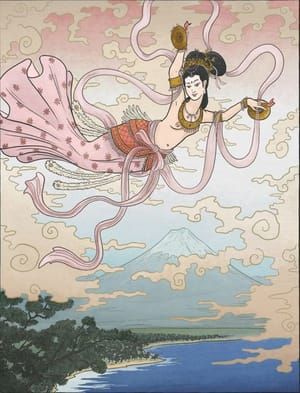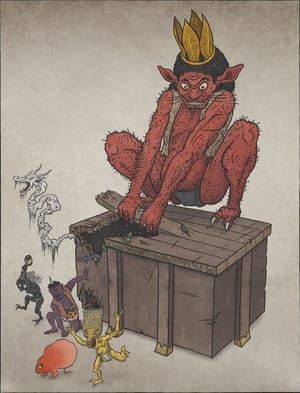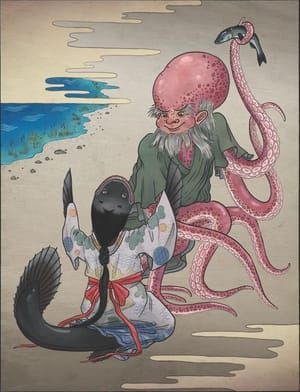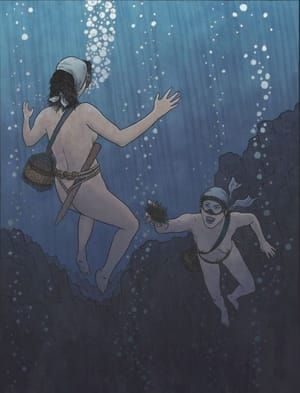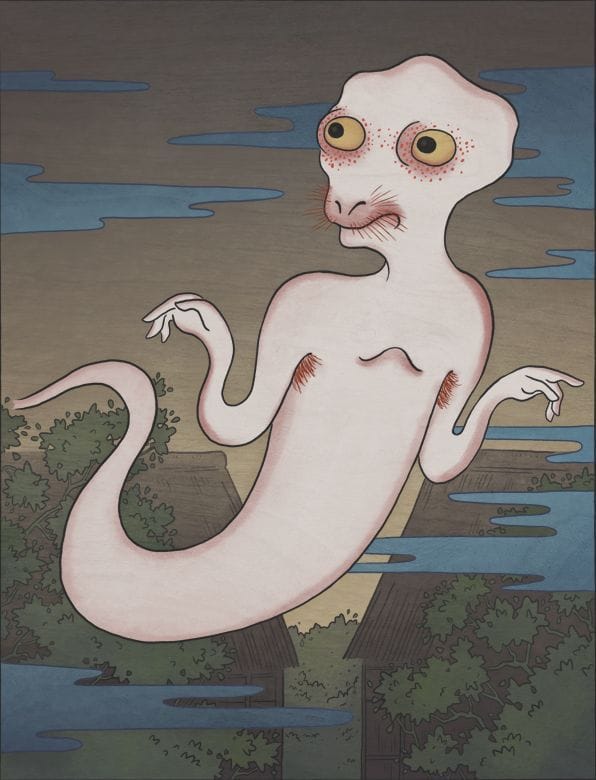

Shiro Ukari, 2016
Matthew Meyer
白うかり
Shiro ukari is a ghost-like spirit with a very long tail. It is white, with large eyes that stare off into the distance as if lost in thought. It floats about in the air, aimlessly wandering about.
Shiro ukari appears on a few Edo period scroll paintings, and nowhere else. It was invented by an artist rather than recorded from folklore. Aside from its name, nothing is written about it. Everything about it, including its behavior and its origin, is unknown and unexplained. However, its name may be a clue to its origin.
While it shiro ukari literally means “white floater,” both of these words carry a number of nuances which could refer to this spirit’s true nature. Shiro not only refers to the color white, but to a state of total innocence or naivety. Whereas ao (blue) is used in many yokai to refer to a novice or an apprentice, shiro can refer to a state of total, absolute naivete. It has a negative connotation, akin to a “fool” or a “country bumpkin” in English. The urban socialites of Edo looked down on the “shiro” people who lived in the rural areas outside of the capital. While not specifically stated, the vacant expression on this yōkai’s face could be an allusion to this alternate meaning of shiro.
Ukari comes from the word for floating, which has a number of different implications. The most literal meaning is to float about from place to place. There is also a nuance of absentmindedness or disconnect from others. Tourists who feel out of place in a strange city might be described as floating about in this way. It can also refer to merrymaking, particularly in a way that is disconnected with the real world. This is the same origin as the word ukiyo, which refers to the “floating world”—the urban, pleasure-seeking lifestyle of old Edo. In a spiritual sense, this word can also refer to spirits which have not been able to pass on to the next world due to the weight of their sins. They float about, but never ascend, and are doomed to haunt this world.
Perhaps shiro ukari is a pun describing the uncouth, naive rural bumpkins who Edo urbanites thought had no business being in their city. Their experience in the capital might be something like a wide-eyed ghost floating from place to place. Perhaps it is a yōkai which seeks out the impermanent pleasures of life just as the humans of old Edo did. Or perhaps it is the spirit of someone who is unable to ascend into the next world, and they are forced by the weight of their sins to float about and wander aimlessly for the rest of their existence.
Matthew Meyer
artistArthur
Wait what?
